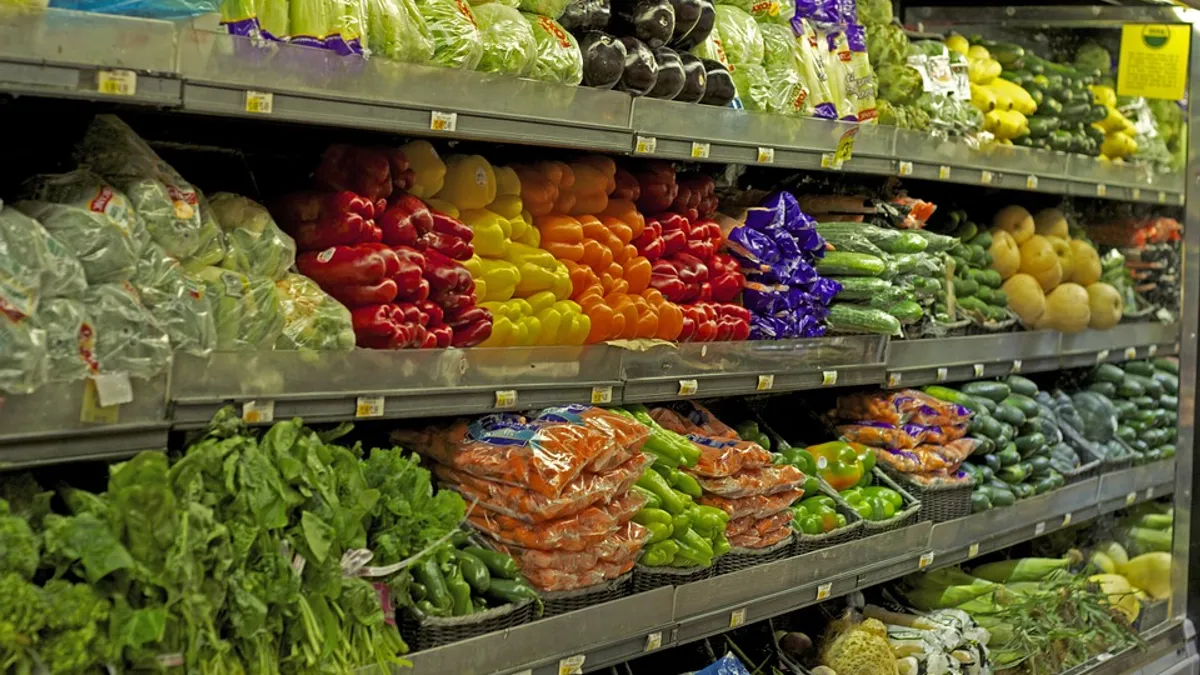Dive Brief:
- Digital startup Forager has launched a new platform that offers supply information, procurement and payment between retailers and local product suppliers, according to a company release.
- The launch, which will focus on the northeast U.S., follows a successful pilot in Maine that handled supply and ordering between 100 farmers and ten retailers and distributors.
- According to the company, traditional local sourcing methods consume 60 hours of work each week, and can lower margins by a third or more.
Dive Insight:
Many years after local products began showing up on mainstream grocery shelves, demand remains high. Data from the U.S. Department of Agriculture shows that sales of locally produced foods hit $12 billion in 2014 and are projected to reach $20 billion by 2019.
Despite local’s popularity, though, product sourcing has been a headache for grocers used to bulk shipments from large distributors. That’s beginning to change as retailers and suppliers hone their operations, and as third-party sources step in to help both parties out.
Incubators like D.C.’s Urban Kitchen and Portland’s KitchenCru offer local producers access to industrial kitchens, packaging and marketing operations, and help place them in retail stores in return for a cut of their sales. On the digital side, platforms like Rangeme help retail buyers sift through an abundance of small brands to find promising ones for their stores.
Forager, started by a co-founder of digital gift card company Cashstar, looks to streamline another important side of the relationship between retailers and local suppliers: procurement and payment. Buyers can sift through a database of local suppliers and see what they have available, then order, pay and arrange shipment through the platform. It centralizes supply data and saves a lot of back and forth between both sides.
Forager recently wrapped up a pilot program in Maine that connected local suppliers with grocers, co-ops and wholesalers. It’ll be worth watching how the company fares as it expands its operations throughout the northeast. Can it adequately scale up to serve the likes of a Hannaford or Roche Bros.? Will mainstream grocers and regional players like these bite? Local sourcing tends to be more complicated with these larger companies, whose strict quality, safety and distribution standards can set a high bar for local producers to meet.












